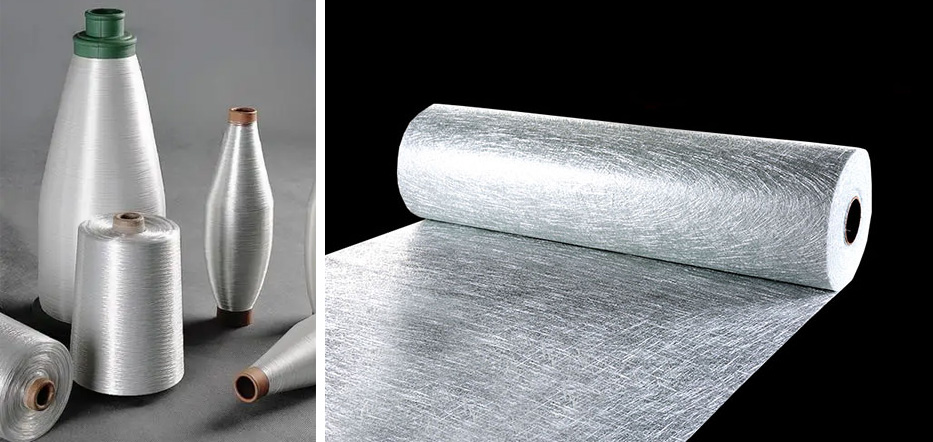The impact of glass fibers in daily life and industrial production is complex and multifaceted. The following is a detailed analysis of its impact:
Advantages:
Excellent performance: as an inorganic non-metallic material, glass fiber has excellent physical, chemical and mechanical properties, such as high strength, high stiffness, corrosion resistance and high temperature resistance.
Wide range of applications: it is widely used in construction, aerospace, automotive, electronics, marine and other fields, such as the manufacture of materials for heat insulation, sound insulation, fire prevention, and for reinforcing plastic or rubber products.
Impact on daily use:
Safety:
Fiberglass is relatively safe in normal use. However, there is a risk of injury from pure fiberglass products as well as raw fiberglass fibers that have not been fixed down, as they can lodge directly into the skin, causing stinging and itching, and may even be inhaled into the lungs, leading to respiratory illnesses.
Careful handling is required when using household products containing fiberglass to avoid breakage or splinters.
Environmental Impact:
Compared to other industrial materials, fiberglass is less polluting to the environment and usually does not produce harmful gases and wastewater or contaminate the soil.
However, fiberglass dust may be generated during production and handling, and this dust may be hazardous to human health if inhaled into the lungs.
Health Effects:
Fiberglass products may produce large amounts of dust and tiny fiberglass particles during production and use, and these particles, if inhaled into the lungs, may lead to respiratory disorders such as bronchitis and pneumonia.
Fiberglass products may also cause skin irritation and allergic reactions, such as rashes and itching, as well as eye irritation and damage, such as red, swollen and painful eyes.
Protective measures:
Wear protective equipment: when using fiberglass products, wear protective masks, gloves, etc. to reduce direct contact of dust and fibers on the human body.
Proper use and handling: Follow the instructions for use and safe operation procedures of the product to avoid safety problems caused by improper operation. Also, dispose of discarded fiberglass products correctly to avoid pollution to the environment.
Fiberglass has a wide range of applications and important roles in daily life and industrial production. However, it also has certain safety hazards and environmental impacts. Therefore, when using and handling fiberglass products, it is necessary to take appropriate protective measures and comply with the relevant safety regulations to ensure human health and environmental safety.
Post time: Oct-29-2024






